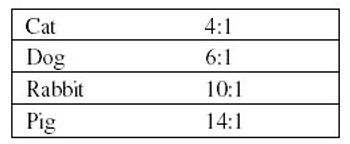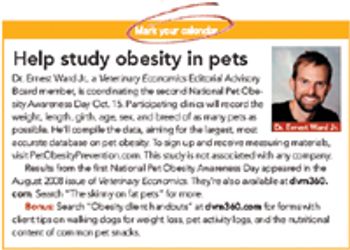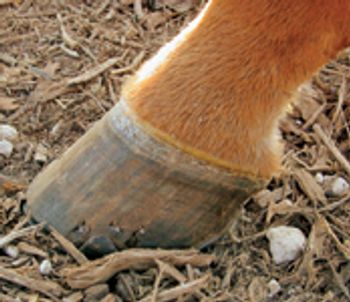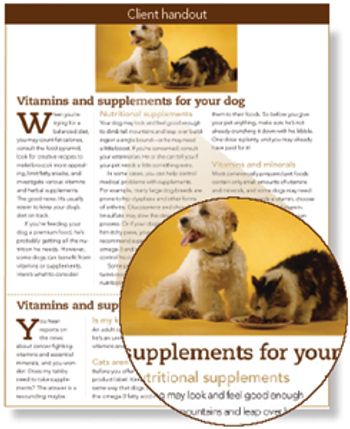
Obesity is the number one nutritional disorder in pets in the western world. Twenty five percent of cats seen by veterinarians in the USA and Canada are overweight or obese.


Obesity is the number one nutritional disorder in pets in the western world. Twenty five percent of cats seen by veterinarians in the USA and Canada are overweight or obese.

Over the last several decades we have witnessed tremendous changes in dairy production systems.

Dairy production systems in the U.S. have changed considerably over the last several decades due to forces that promote economic efficiency of production and to scientific and technological advances that afford opportunities for change.

Reptile surgery can be very complicated. Luckily in this day and age of reptile medicine, we are afforded several options for anesthetic as well as surgical techniques.

The cardinal rule of feeding a malnourished or anorectic patient is "use the gut if at all possible."

Kara answers questions about renal health issues

Weight-loss programs can mean big business for your program.

If, according to an old English proverb, the eyes are the windows to the soul, then for horses and humans the nails and hooves may well be the windows to inner health or medical problems.

Regulation of animal dietary supplements is in "disarray," according a new report.

Patients of any age may become malnourished from inadequate nutrient intake while in our care.

Dr. Cathy E. Langston discusses what is an appropriate diet for cats and dogs with renal disease.

Educate veterinary clients about their pets' nutrition with this handout.


Q: Please provide a review on palliative care for animals diagnosed with cancer.

Nutritionist Dr. Susan Wynn shares her expertise on supplementation communication.

Everyone knows about vitamins, right?

The goal of neonatal care is to maximize the health and well being of the newborn puppy and kitten.

We often go to great extremes to do the best for our animals.

Inflammatory bowel disease (IBD) in dogs and cats is the name used for many disorders of the small and large bowel of the gastrointestinal tract.

Inflammation is a reaction of the microcirculation characterized by movement of fluid and leukocytes from the blood into extravascular spaces.

The new Small Ruminant NRC is a big book with lots of features.

Perform this simple exercise during your next staff training session: Ask each team member to list the top ten conditions and/or diagnoses your hospital sees on a daily basis.

If you own sheep, you know about copper.

Kara answers questions about transitiong pets to different types of food

There is no such thing as the one and only ideal diet. Why?